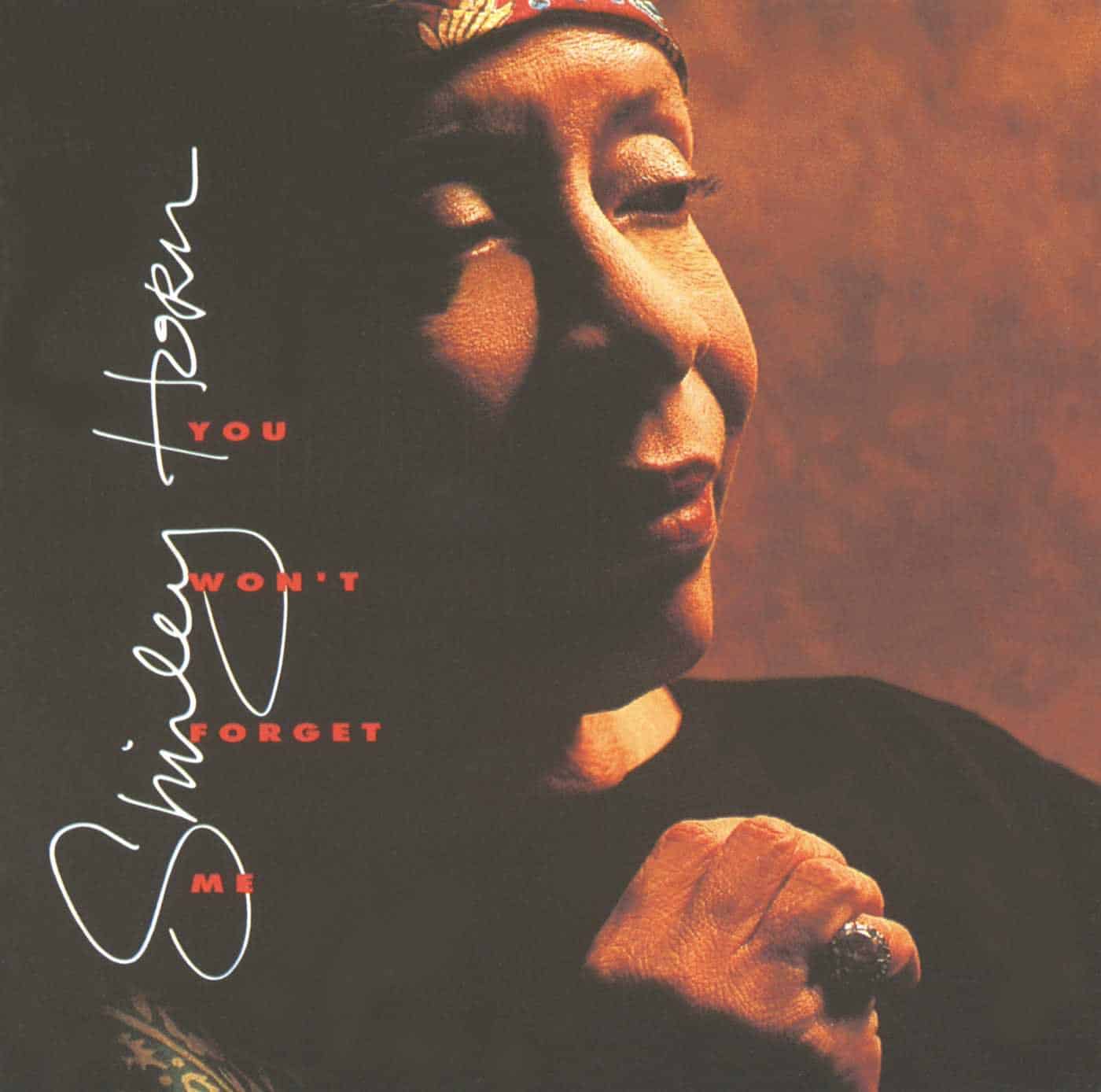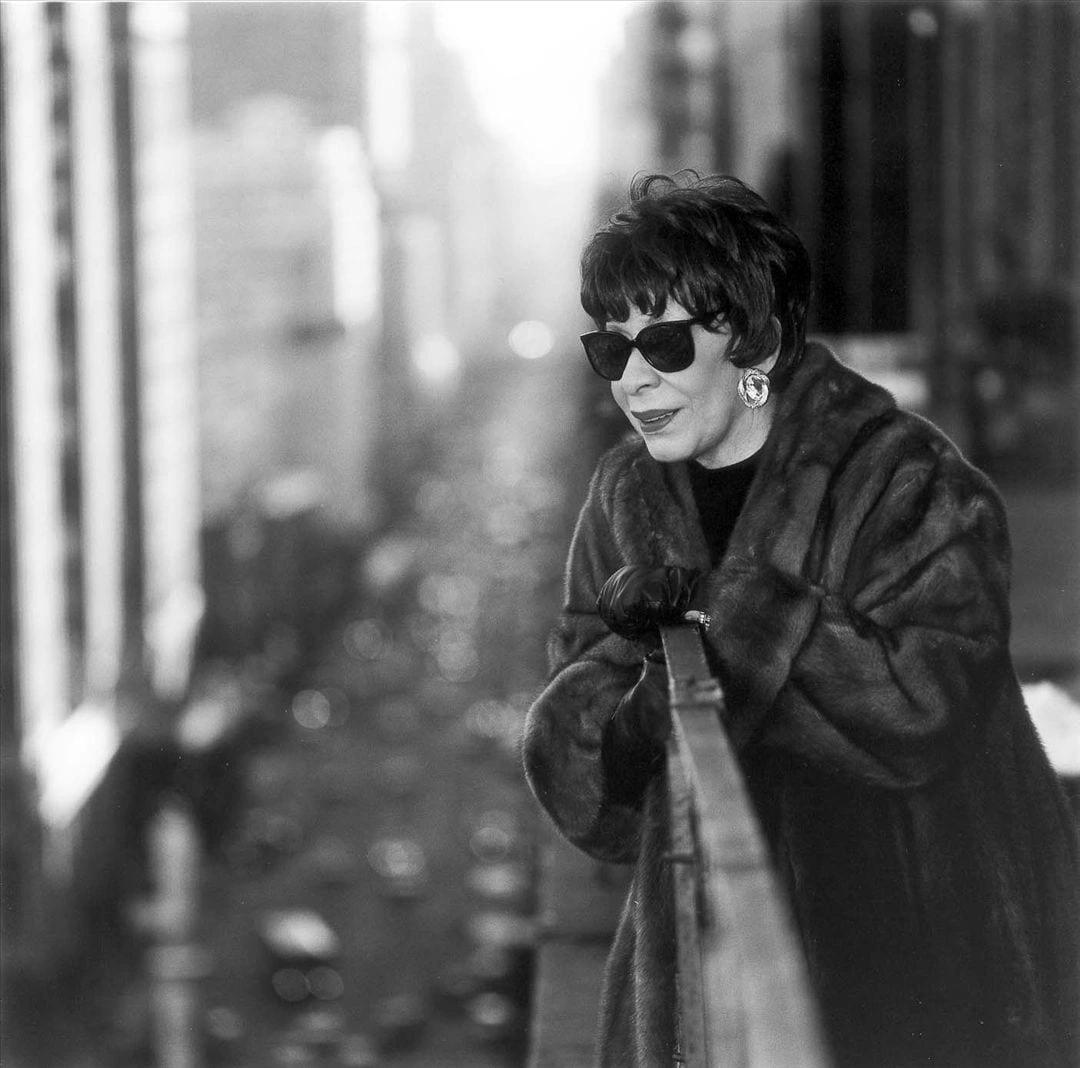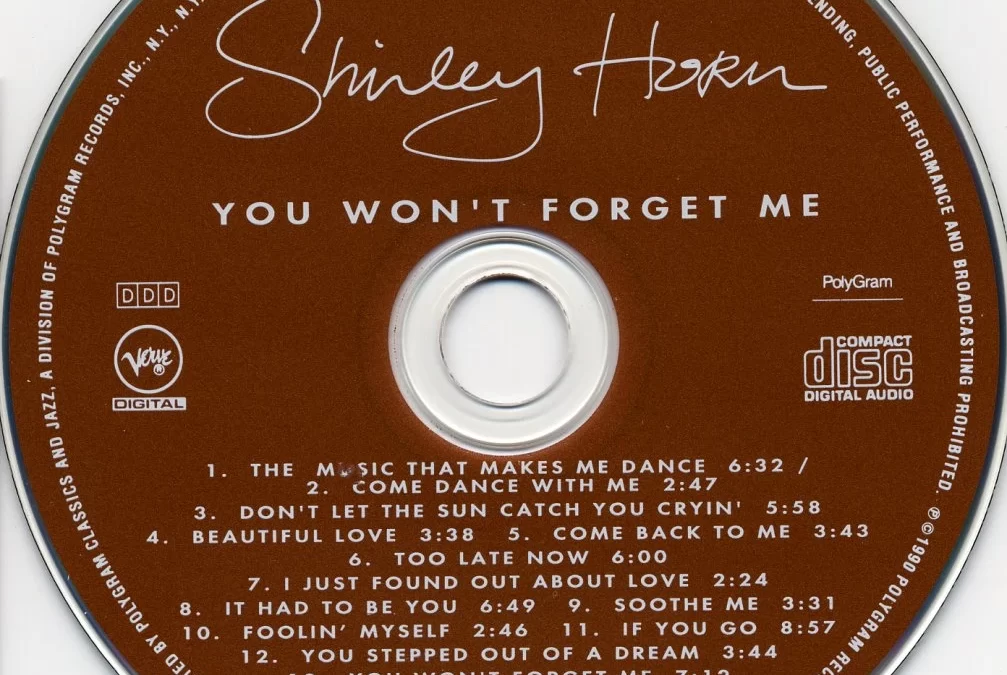
Now Shirley Horn’s “If You Go”: A Masterclass in Perfection
For those yet to discover the singular artistry of Shirley Horn, the journey into her work is one that defies time. Miles Davis famously declared her his favorite singer-pianist, and Quincy Jones compared her vocal presence to an exquisite garment that enfolds you, drawing you in with its sheer elegance. “If You Go” is the quintessential piece to understand this mastery—an intimate portrait of Horn’s unparalleled timing, restraint, and musical wisdom.
Shirley Horn was raised in Washington, D.C., under the guidance of a grandmother who encouraged her musical exploration from a young age. By the age of four, she began piano lessons, and at twelve, she was studying piano and composition at Howard University, ultimately graduating with a focus in classical music. Yet it was jazz that beckoned her, offering her a canvas on which she could cultivate a highly distinctive style defined by lingering pauses and haunting silences. Horn knew that music was as much about what wasn’t played as what was, creating moments that hang in the air, demanding attention and inviting introspection.
“If You Go” is an exquisite example of her artistry in space and timing. With Horn, silence was not simply the absence of sound; it was a presence in its own right, creating a tension that elevated each note. She makes listeners wait, gently guiding them to savor the next word or chord. In doing so, she adds a profound emotional weight to her performance, her voice both tender and intense, unhurried yet deeply deliberate.
One of the hallmarks of Horn’s work was her preference for intimate settings. She often performed with her trio, allowing her to express a nuanced intimacy that a larger ensemble could not accommodate. And though she recorded with orchestras on albums like Here’s to Life—a release that gave her a signature song—her small-group performances capture the essence of her style. Her trio offered her the space to explore the intricacies of each melody, every note chosen with intention and every pause weighted with purpose.
Miles Davis’s admiration for Horn extended beyond words. In 1991, he made a rare appearance as a sideman on her album You Won’t Forget Me, a testament to his profound respect for her artistry. In Horn’s hands, the piano and voice became an inseparable pair, each enhancing the other’s depth. Much like Davis himself, she understood the allure of economy in music—the impact of a single, well-placed note over a cascade of sound. The space she left between notes was akin to the silence that follows thunder, where the memory of the sound lingers just as profoundly as the sound itself.
Quincy Jones famously described Horn’s voice as “like clothing,” and this sensuous quality is evident in every second of “If You Go.” The song becomes a hushed conversation between the singer and listener, as though she’s singing directly into one’s ear. The result is a song that feels both intensely personal and universally resonant, the kind of performance that leaves an imprint long after the music has faded.
Shirley Horn’s legacy rests not only in her technical abilities but in her ability to make silence sing. Her style of “attenuation,” the art of stretching time without losing the listener’s attention, was a skill few could match. “If You Go” remains a touchstone of her career and a masterclass in how the pauses between notes can convey as much as the notes themselves. It invites listeners into an experience of pure, distilled emotion, a tribute to the power of subtlety in music—a lesson from a true master at the height of her artistry.
In exploring “If You Go,” we find ourselves not just hearing a song but witnessing an artist fully inhabiting her craft, offering a timeless lesson in the art of restraint, presence, and the delicate balance of space and sound.
(If you should go, if you should leave him alone
There’ll be no spring or birds to sing
There’d be no sun to shine on him)
If you go, if you love me no more
If I know that you want me no more
Then the sun would lose its light
And day turns into night
Night without stars
Deep night without stars
If you go, if you leave me alone
If I know you’re no longer my own
Winter would replace the spring
The birds no more would sing
This cannot be, stay here with me
My heart would die I know
If you should go
(Orchestral Break)
Winter would replace the spring
The birds no more would sing
This cannot be, oh, stay here with me
My heart would die I know
If you should go

If You Go · Shirley Horn
You Won’t Forget Me
℗ 1991 Verve Label Group, a Division of UMG Recordings, Inc.
Released on: 1991-11-04
Producer: Richard Seidel
Producer: Joel E. Siegel
Composer Lyricist: Michel Emer
If You Go

(If you should go, if you should leave him alone
There’ll be no spring or birds to sing
There’d be no sun to shine on him)
If you go, if you love me no more
If I know that you want me no more
Then the sun would lose its light
And day turns into night
Night without stars
Deep night without stars
If you go, if you leave me alone
If I know, you’re no longer my own
Winter would replace the spring
The birds no more would sing
This cannot be; stay here with me
My heart would die I know
If you should go
(Orchestral Break)
Winter would replace the spring
The birds no more would sing
This cannot be, oh, stay here with me
My heart would die I know
If you should go

NEW Bose QuietComfort Ultra Wireless Noise Cancelling Earbuds, Bluetooth Earbuds with Spatial Audio and World-Class Noise Cancellation, Black
CR’s Take
OVERALL SCORE
73
CR RECOMMENDED
WIRELESS PORTABLE HEADPHONES
OnePlus Buds Pro Headphone
This wireless Bluetooth model from OnePlus delivers very good sound quality and active noise reduction, combining elements of in-ear and earbud earphones. These earphones have an isolating design and an ambient sound monitoring feature; they will provide some muffling and electronic canceling of external noises and reduce the amount of sound that escapes from the earpieces. As such, they are best for those who want highly portable earphones that reduce the noise they hear from their surroundings or don’t want the sound from the earpieces to disturb others.
Not long ago, Barbra Streisand praised Horn to Oprah Winfrey as “a wonderful musician who understands the power of intimacy and how to convey the deepest meaning in a song. When Shirley whispers a lyric, she speaks volumes.”
Pianist Marian McPartland, whose NPR show, “Piano Jazz,” has featured Horn several times: “Everything she does, she does with such great taste and romance. To sit back and listen to something as serene as Shirley is a joy. It’s amazing that after all she’s been through, she’ll come through just as well, maybe even better, because of it.”
“Shirley’s like a good wine: She’ll just age and age and age,” says pianist McPartland. “As we go down through the years, people will know and feel who she was and what she had to offer because she’s the best. Ella, Sarah, Carmen — they were so strong and hit you over the head. You have to have an open heart and ears to come to Shirley Horn, but once you get there, she’s got you.”
Two years ago
People ask, “Do you remember where you were when blah blah?” When I first heard Shirley Horn, I was visiting San Francisco. I’d bought a nice travel radio and was lying in the bath listening to a local radio station. When she came on, I couldn’t understand how she was talking to me, reaching me in a way no one else ever had or has since. Yes, a great singer. Yes, a great pianist. But the engagement and communication were astonishing. Thank you for this film with its insights and respect. I wish many more people knew of her.

Shirley Horn Trio Live at The Village Vanguard 1991
Charles Ables (bs)
Steve Williams (dr)
01. Change Partners 01:07
02. I’ve Got the World on a String 03:34
03. How Am I To Know? 07:37
04. Wild Is the Wind 12:10
05. The Rules of the Road 20:15
06. One at a Time 25:40
07. Nice & Easy 31:37
08. If You Love Me 38:09
09. I’m Just Fooling Myself 46:08
10. Isn’t It a Pity? 49:34
11. Return to Paradise 56:35
12. Quietly There 01:05:04

